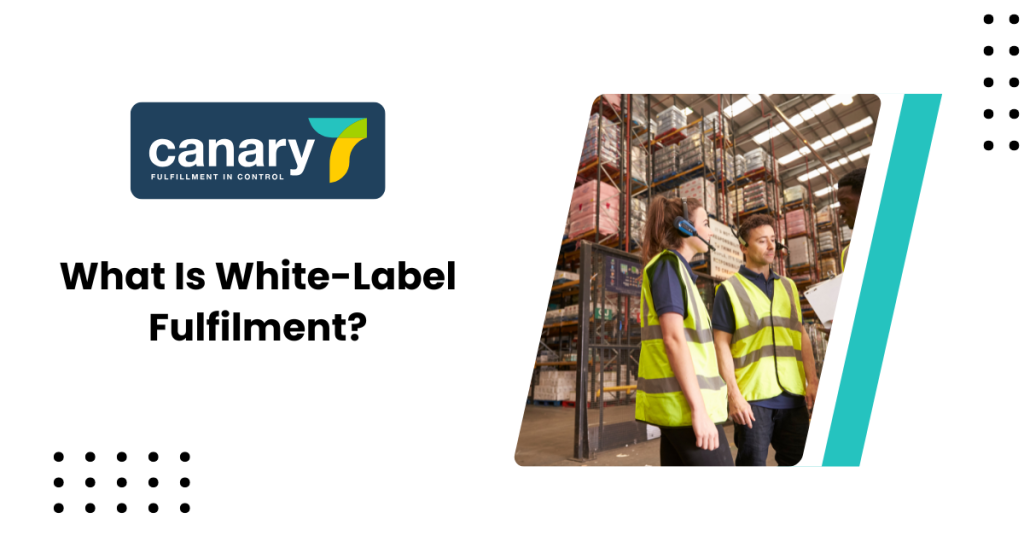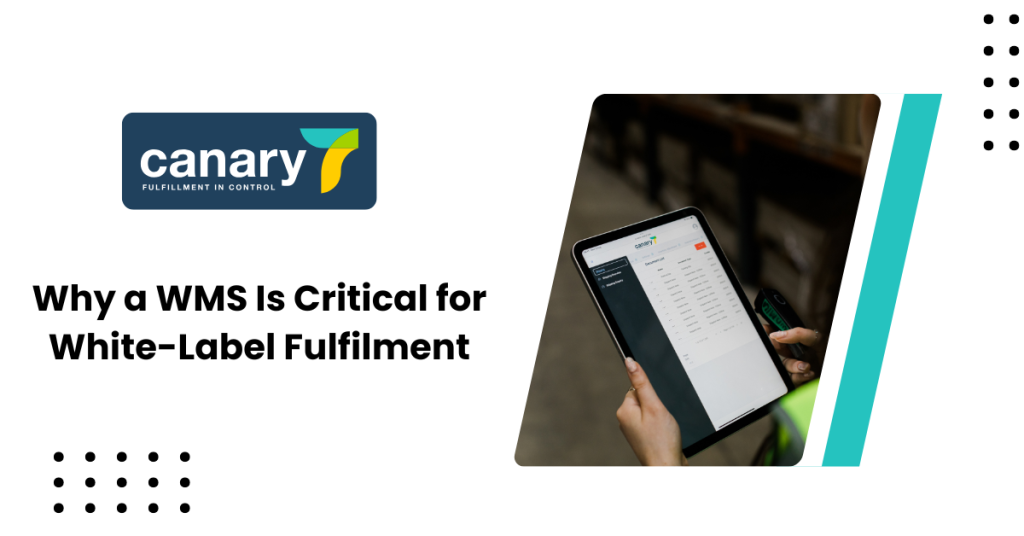1. Multi-Client Inventory Management
For white-label operations, managing stock for multiple clients can quickly become a logistical nightmare. You might have similar products stored side by side, each belonging to different brands, and a single mix-up could cause major reputational damage.
Canary7 eliminates this risk by allowing you to segregate inventory digitally and physically. You can manage distinct product catalogues, SKUs, and storage zones for each brand, all within the same warehouse.
Key capabilities include:
• Real-time visibility: Instantly view available stock per client, batch, or lot.
• Automated stock control: Replenishment alerts and reorder points prevent stockouts or overstocking.
• Traceability: Every movement, from inbound to dispatch, is logged for complete accountability.
This ensures that each brand’s inventory is handled accurately, securely, and in accordance with their individual service-level agreements (SLAs).
2. Automated Order Processing Across Brands
White-label fulfilment means handling orders from a wide variety of sources, online stores, marketplaces, ERP systems, or even manual uploads. Managing these without automation can lead to delays, duplicate entries, or errors in order assignment.
Canary7’s cloud-based WMS automates the entire order flow. The system integrates directly with major platforms like Shopify, WooCommerce, Magento, SAP Business One, and NetSuite, automatically importing orders and mapping them to the correct brand.
Once imported, each order follows a brand-specific workflow, from pick list creation to packing instructions, ensuring the correct packaging, documentation, and shipping carrier are used. This eliminates the need for manual intervention and significantly speeds up processing time.
With every step automated and tracked in real-time, you can confidently manage hundreds of daily orders across multiple brands without sacrificing accuracy or control.
3. Branded Packing and Labelling for Every Client
White-label fulfilment isn’t just about getting orders out the door, it’s about creating an experience that reflects each brand’s identity. That means personalised packaging, branded inserts, and the right labels every single time.
Canary7 enables customised packing workflows for each client. This includes:
- Automatically applying brand-specific packing rules (e.g., packaging types, inserts, or marketing materials).
- Generating branded documentation, such as invoices, delivery notes, and shipping labels.
- Linking carrier accounts for each brand to ensure that delivery options and tracking align with their preferences.
These features ensure consistency, protect brand integrity, and maintain a polished customer experience, regardless of how many brands you fulfil for.
4. Real-Time Visibility and Transparent Reporting
Transparency is one of the biggest value-adds you can offer white-label clients. They need to know what’s happening with their stock, their orders, and their customers, all without relying on phone calls or spreadsheets.
Canary7 provides real-time dashboards and client portals where each brand can view:
- Current inventory levels and stock locations
- Order statuses and shipment tracking
- Returns processing updates
- Performance analytics such as fulfilment rates and lead times
These insights help clients make informed decisions about reordering, marketing, and customer service. At the same time, they reduce the burden on your fulfilment team by minimising back-and-forth communication.
With transparent data sharing, trust grows, and so do long-term client relationships.
5. Scalable Operations Without Added Complexity
One of the main challenges in white-label fulfilment is scaling up without losing efficiency. As you onboard more brands or expand into new product categories, your systems need to handle that growth seamlessly.
Canary7’s cloud-native architecture is designed for scalability. You can easily add new brands, warehouses, or fulfilment workflows without significant setup time or IT overhead.
This flexibility ensures that whether you’re managing 5 brands or 50, your operations remain consistent, controlled, and efficient. Canary7 also supports multi-site operations, meaning you can manage multiple fulfilment centres from one unified platform — all with real-time data synchronisation.


